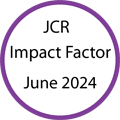A Derivation and Validation Study of an Early Blood Transfusion Needs Score for Severe Trauma Patients
Abstract
Background: There is no existing adequate blood transfusion needs determination tool that Emergency Medical Services (EMS) personnel can use for prehospital blood transfusion initiation. In this study, a simple and pragmatic prehospital blood transfusion needs scoring system was derived and validated.
Methods: Local trauma registry data were reviewed retrospectively from 2004 through 2013. Patients were randomly assigned to derivation and validation cohorts. Multivariate logistic regression was used to identify the independent approachable risks associated with early blood transfusion needs in the derivation cohort in which a scoring system was derived. Sensitivity, specificity, and area under the receiver operational characteristic (AUC) were calculated and compared using both the derivation and validation data.
Results: A total of 24,303 patients were included with 12,151 patients in the derivation and 12,152 patients in the validation cohorts. Age, penetrating injury, heart rate, systolic blood pressure, and Glasgow coma scale (GCS) were risks predictive of early blood transfusion needs. An early blood transfusion needs score was derived. A score > 5 indicated risk of early blood transfusion need with a sensitivity of 83% and a specificity of 80%. A sensitivity of 82% and a specificity of 80% were also found in the validation study and their AUC showed no statistically significant difference (AUC of the derivation = 0.87 versus AUC of the validation = 0.86, P > 0.05).
Conclusions: An early blood transfusion scoring system was derived and internally validated to predict severe trauma patients requiring blood transfusion during prehospital or initial emergency department resuscitation.
J Clin Med Res. 2016;8(8):591-597
doi: http://dx.doi.org/10.14740/jocmr2598w











